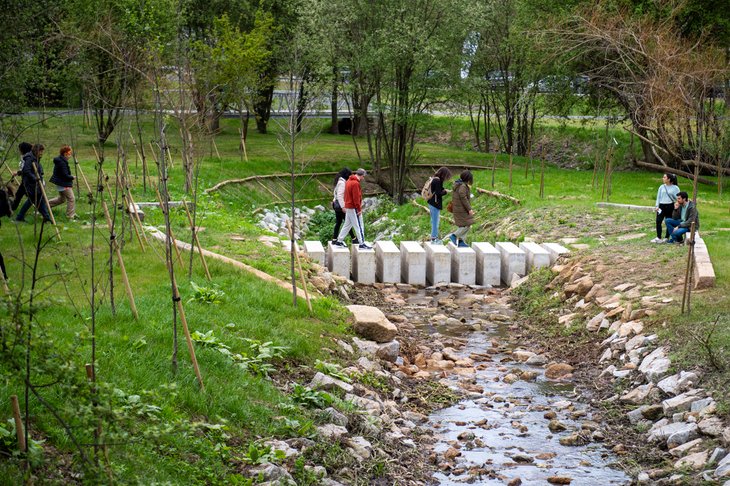Porto debates strategies to fight climate change with European cities
Article

Miguel Nogueira
The vice-President of the Porto City Hall has participated in the event “Climate-Resilient Water Management”, hosted by Globe-EU, that aims to find solutions to the challenges that climate change presents to water management in European cities. During the sessions, Filipe Araújo shared the experience of Porto in the fight against water scarcity, with the employment of non-potable water to clean streets and water green areas, and in the enhancement of the hydrological infrastructure.
The event, that took place on the 8th, brought together specialists in various sectors, including public authorities, policymakers and representatives of the private sector, to discuss efficient strategies in the management of water resources regarding climate changes.
Filipe Araújo highlighted the relevance of taking action in order to face the challenges of water management, mentioning that “the effects of climate change are becoming evident, and we must act immediately to protect our water resources”. He also stresses that the measures adopted by the city of Porto to combat this water shortage, as well as the employment of non-potable water to clean the streets and water green areas.
The head of Environment, Climate Transition, Innovation and Digital Transition, emphasised the need to collaborate between cities, private companies and policymakers to develop sustainable solutions to manage water resources. “Water is a shared resource, and we must work together to guarantee its sustainable management”, Filipe Araújo stated.
The event was attended by specialists from different fields, including Jan Rasmussen, director of the project “Center for Climate Adaptation” in Copenhagen, Cédric Egger, general director of sustainability at Nestlé Waters, Willem-Jan Goossen, Policy Officer, DG-CLIMA.E.1, and Janneke de Vries, director of partnerships in the European Union in World Resources Institute (Aqueduct).
Many topics related to water management, water efficiency and public participation were discussed. The scale of adopting an holistic approach to water management and adaptation to constant climate changes was emphasised. The session ended with a period of open intervention to all participants that had the opportunity to question speakers, but also to share their experiences and ideas of how to face the challenges to water management in their respective cities.